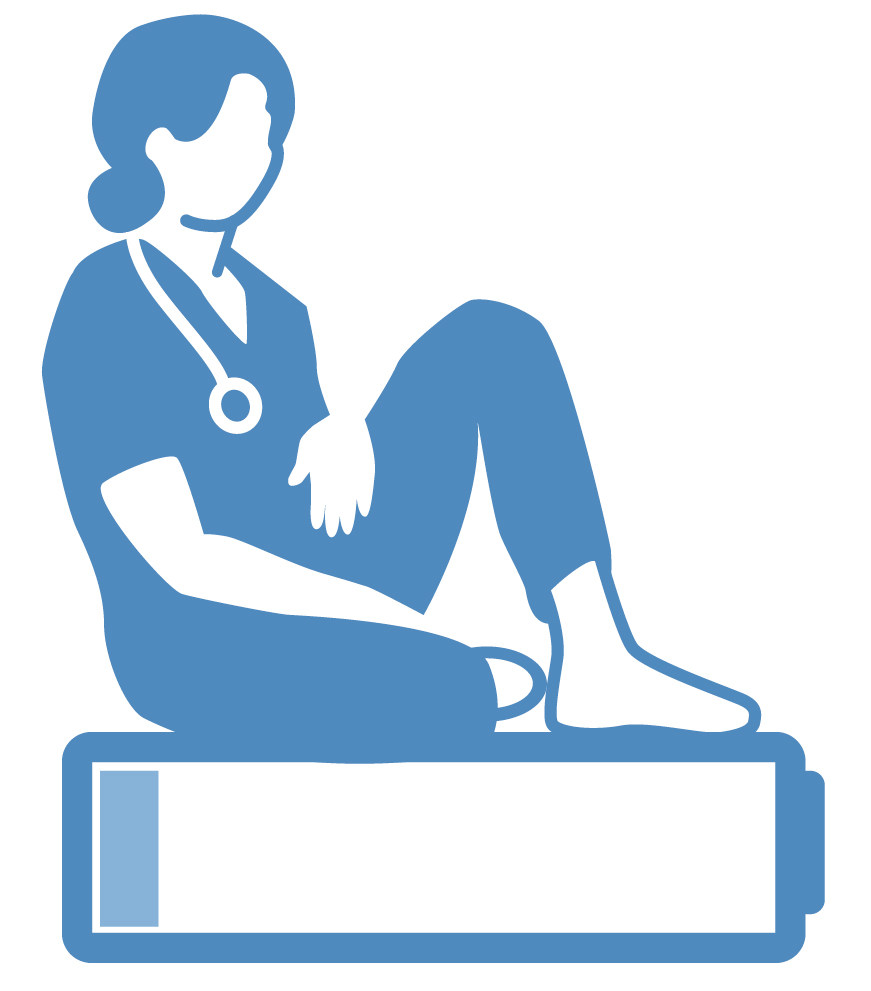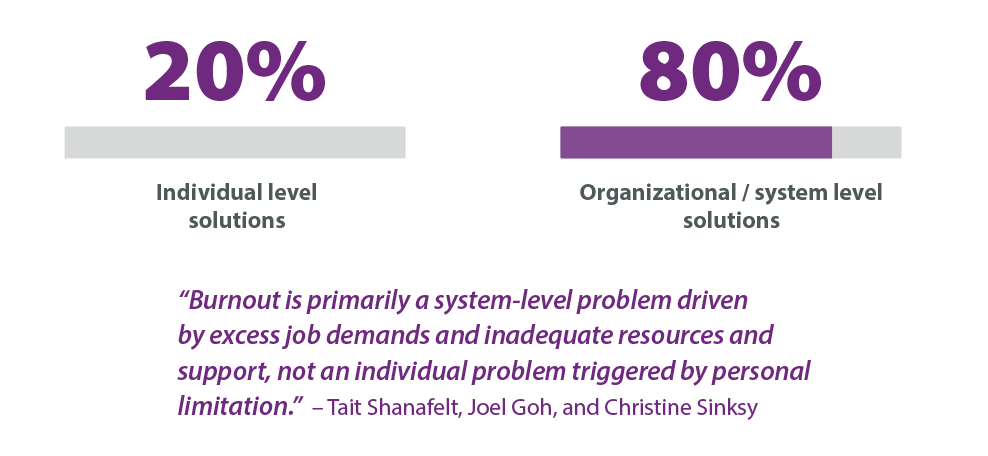Facility Engagement is supporting physicians and medical staff associations (MSAs) with collaborative opportunities to engage with health authorities and others, and participate in workgroup, organizational, and system improvements that support physician wellness.
![]()
 Physician health and wellness challenges
Physician health and wellness challenges
Rates of physician burnout and moral distress were rising before the COVID-19 pandemic.
They continue to rise due to increasing demands on physician time and resources in a complex and, at times, constrained health care system that involves heavy workloads and clinical practice requirements, inefficient system processes, and evolving technology.
Physician burnout and stress has been associated with impacts to patient care quality and health care system capacity with decreased productivity and turnover.
![]()
 Impacts of stress and burnout
Impacts of stress and burnout
Emotional exhaustion, devastating mental health and physical issues, inability to concentrate are a few impacts of burnout reported through the 2019 Doctors of BC Physician Burdens survey.
Physician members reported:
- Unmanageable workloads and loss of work-life balance
- Decreased job satisfaction and joy in practice
- Disengagement, unable to influence change
- Reduced work hours or services, changing specialties, leaving the profession
Doctors of BC – Physician Burdens Member Feedback
![]()
 Where to focus solutions?
Where to focus solutions?
Individual approaches to improve physician health and wellness are important. But burnout is often a result of challenges experienced in the physician work environment at the local work group and/or organizational level.
The Specialist Services Committee (SSC) Facility Engagement Initiative recommends that medical staff associations (MSAs) focus engagement funding and activities for physician wellness primarily in areas of work group-level/ organizational-level improvements or in combination with individual level strategies.
Physician wellness advocates suggest that about 20% of burnout is impacted by individuals while as much as 80% is impacted by the practice environment / organization.* They also recommend to maximize physician well-being, both individual and organizational/system level strategies are needed (West, Dyrbye, Erwin, & Shanafelt, 2016).

*Suggested areas of focus: Dr. Tait Shanafelt, a leading international expert on wellness; the Canadian Medical Association; Canadian Medical Protective Association. See below for more references.
![]()
 Collaboration: A path to organizational-level solutions
Collaboration: A path to organizational-level solutions
In BC, physicians have opportunities to address some of the workplace and organizational-level issues that contribute to stress and burnout through the Joint Collaborative Committees (JCCs), which includes SSC Facility Engagement. Physicians can:
- Join and engage in collaborative entities such as MSAs, divisions, networks, communities of practice, and others and have a united voice no matter where they practice.
- Create strong relationships and formal collaborative processes with health authorities, physician colleagues and others to work together on problems and improvements.
- Tailor solutions to local challenges, and/or work on common challenges at the organizational, regional and/or provincial levels, such as care coordination, patient transport, electronic health records, and recruitment and retention.
- Lead a spectrum of improvement initiatives to energize and stimulate better practice environments.
- Connect with other physicians to build community, collegiality, self care and peer support, recognize accomplishments, reduce isolation, and support each other in the care for patients.
READ MORE: BC's Joint Collaborative Committees>
![]()
Supports for individual-level wellness
The Joint Collaborative Committees have also partnered with the Physician Health Program of BC to start developing and supporting provincial resources for individual physician health, including:
- Networks of trained physicians offering their colleagues one-to-one peer support.
- Services to match physicians with their own family physician to support their primary care needs.
- Core cognitive behavioural skills training for physicians to support their health and wellness.
At the same time, Doctors of BC continues to enhance and develop programs to meet the current and future individual wellness needs of its members. Read about supports here >
![]()
References and related links (useful for planning):
- Shanafelt, T.D. (2021). Tait Shanafelt, MD, on addressing physician burnout. AMA.
- West, C. P., Dyrbye, L. N., Erwin, P. J., & Shanafelt, T. D. (2016). Interventions to prevent and reduce physician burnout: a systematic review and meta-analysis. The Lancet, 388(10057), 2272-2281.
- Mayo Clinic Proceedings: Executive Leadership and Physician Well-being
Nine Organizational Strategies to Promote Engagement and Reduce Burnout >
- Mayo Clinic Strategies to Reduce Burnout e-book: 12 Actions to Create the Ideal Workplace (Swensen and Shanafelt). Borrow an e-book from the College of Physicians and Surgeons of BC (will need login).
- Canadian Medical Association: Addressing burnout at a systems level
- CMPA Canadian Medical Protective Organization (CMPA): Guide to healthier physicians: An investment in safe medical care.
![]()


